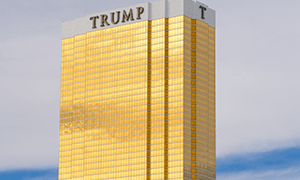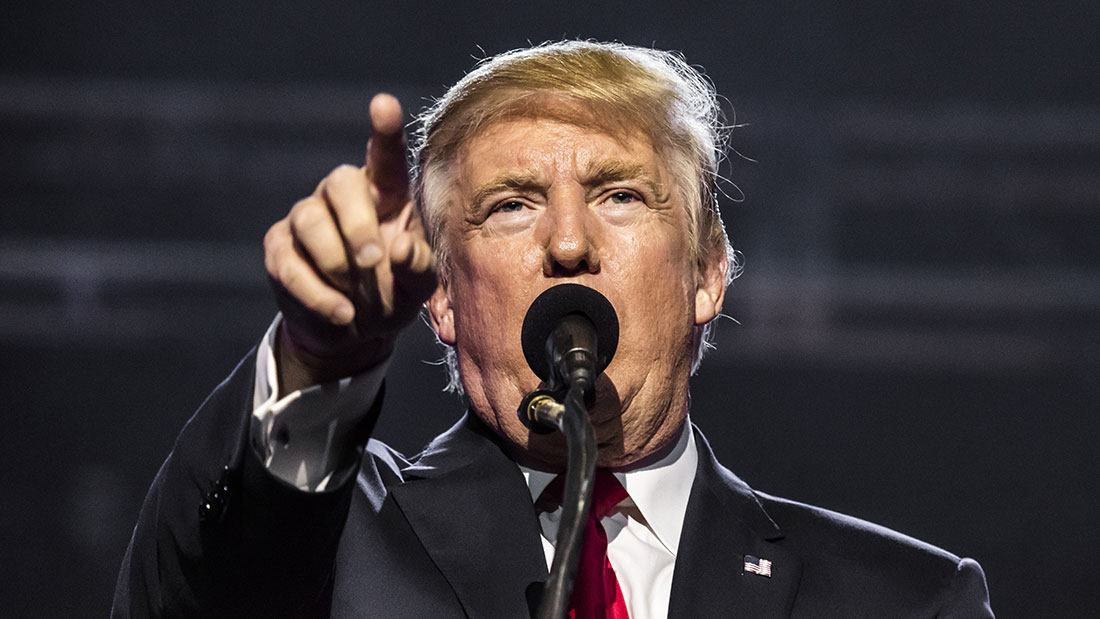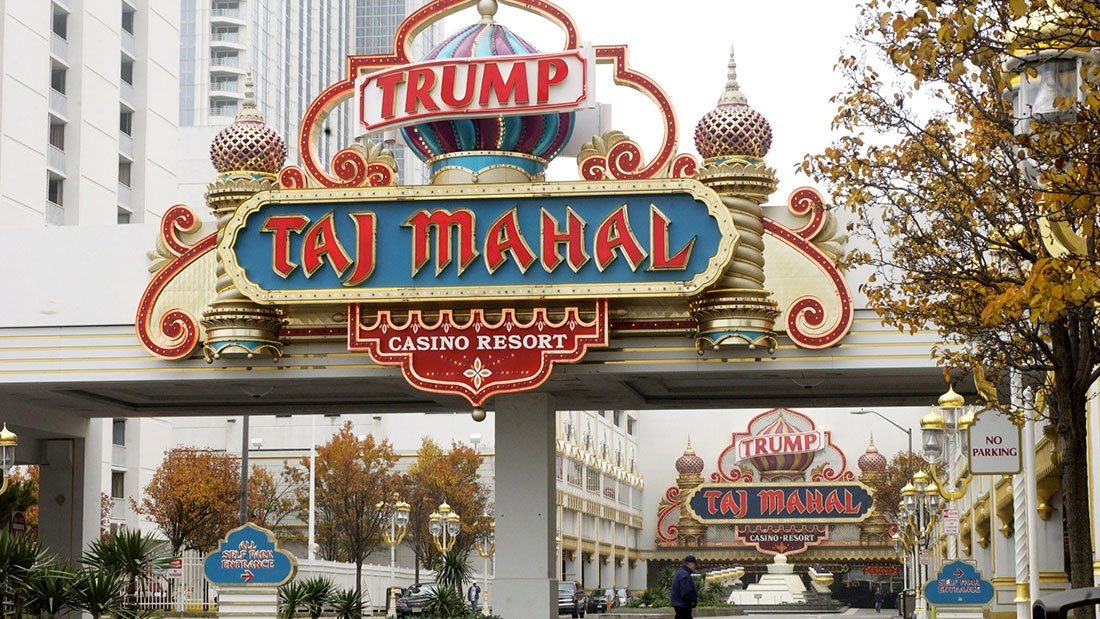Trump’s Casino Empire Exposed

Donald Trump built his reputation as a successful business tycoon over the last 30 years and then surprised a lot of people when he decided that his next goal was to become the President of the United States. Trump’s business empire has been hit with a number of controversies over the years and his term in office has also sparked a number of controversies and divided the American people. If history is anything to go by, he will need to be president for 6 terms before he gets it right. I am sure there are many Americans willing to place a bet at a no deposit casino and cash in big. We live in in hope but history tends to repeat itself.
We will focus on two areas of Donald Trump’s business empire which revolve around his venture into the casino industry and his bankruptcies in 1991, 1992, 2004 and 2009.
Trump’s Companies Go Bankrupt Four Times
Trump announced in the eighties that he would construct a casino without using junk bonds and he went on to build the infamous Trump Taj Mahal casino resort in Atlantic City. His company went bankrupt in 1991 because he couldn’t pay the interest.
The following year, the Trump Plaza another Atlantic City casino suffered a loss of over $550 million and went bankrupt. Trump however retained his position of CEO but did not play any role in the casino’s operations. By the time it all ended, he had a personal debt of $900 million.
Trump recovered his fortunes during the next 10 years but his Trump Hotels and Casino Resorts suffered major losses and incurred a debt of $1.8 billion in 2004. The casino went bankrupt, but re-emerged under the name of Trump Entertainment Resorts only to go bankrupt again after five years.
Thousands of casino workers who suffered due to the closure of these Trump owned casino resorts. Trump managed to walk away from these losses by declaring personal bankruptcy but his reputation took a beating. He tried to justify his actions by stating that he stayed within the limits of the law to manage his debts and leveraged loopholes in tax laws to his favor.
Brief History of Trump’s Business Endeavors and Controversies

During Trump’s presidential campaign in 2016, several controversies ranging from sexual assault allegations to shady business deals came to light. These controversies did not prevent him from becoming the President of the United States but what it did do was provided his critics with more than enough ammunition to keep hammering him.
Born in a family that was in the real estate business, he learned a lot of business tricks from his father. His economics degree and work experience in the family business eventually gave him full control over the family firm, which he rebranded as The Trump Organization in 1971. Since he had an eye on huge projects, he moved his headquarters to Manhattan.
In March 1982, he obtained a casino gaming license from the NJ Casino Control Commission. Interestingly, it took him just two hours to get a license. Under normal circumstances, the NR regulator had a reputation of taking months to review and grant license applications.
Failures In Atlantic City
He partnered with Harrah’s to construct Atlantic City’s tenth casino, Harrah’s at Trump Plaza, which was thrown open in May 1984. A year later, he purchased Hilton Hotel and called it Trump’s Castle Hotel & Casino, which made Harrah’s furious as the company did not want two hotel casinos with the same name. In response, Trump purchased Harrah’s.
During those days, Merv Griffin, a producer and TV talk show host, developer, and owner of Griffin Gaming and Entertainment Company, was Trump’s competitor. When Resorts International got into trouble, he fiercely competed with Trump to take it over. Finally, an agreement was signed among the three, giving Griffin a casino bearing the Resorts brand in the Bahamas as well as Atlantic City and leaving Trump free to take over The Taj Mahal.
As a result, the Trump Taj Mahal Casino Resort was opened to the public on April 2, 1990. The $1 billion casino resort and hotel became one of the best in Atlantic City, attracting visitors from different parts of the world. But barely a year after its launch, the company declared bankruptcy and Trump had to sell his airline company and his yacht to pay off the debt.
Forced To Exit Casino Industry

Atlantic City’s economy suffered during these years and it did not help the casino industry. Shortly after the Trump Taj Mahal went bankrupt, Trump filed Chapter II bankruptcy on the Trump Casino and the Trump Plaza, his first two casino resorts. Finally in 1995, the two properties were re-established as a single publicly traded company called Trump Hotels & Casino Resorts (THCR).
This new company later purchased The Taj Mahal, established a hotel casino in Indiana, and constructed a new one in Atlantic City, called Trump’s World Fair, which shut down three years later. In 2004, THCR entered into bankruptcy again and restructured its debt.
According to a new deal with his creditors, Trump’s stock ownership reduced to 27% and the company was renamed as Trump Entertainment Resorts (TER). The name of the company changed but its fortunes did not and TER went bankrupt soon after which resulted in the Indiana casino resort being sold. Donald Trump’s stock dropped to 10% and this was the last time that he ventured into the casino business.
The iconic Trump Taj Mahal was sold to billionaire investor Carl Icahn who tried to revive the fortunes of the casino resort but failed. Icahn later sold the property to Hard Rock International who transformed the property to open Hard Rock Atlantic City.
We are sure Trump is working behind the scenes to regulate USA no deposit casinos to his benefit. We are already seeing changes happening since he became president.
Trump Made Millions While Employees Suffered
Trump’s failure at running a successful casino industry caused a lot of damage to casino employees as well as Atlantic City. However, being the shark that he is, Trump still made millions from his casino ventures and went on record to say that Atlantic City played a major role in boosting his personal income and claimed that the money he made from his casino ventures was incredible.”
Trump had shifted his personal debts to his casinos and earned millions in bonuses, salaries, and others. Ultimately, the investors had to bear the burden of the bankruptcies. Since he had borrowed at high rates of interest, his businesses simply couldn’t succeed. Even when the companies filed bankruptcy four times, they did not stop accumulating expensive debts.
Tainted Reputation
In the early nineties, he saved himself from a financial disaster by refusing to repay debts. And then he turned his companies into publicly traded companies and shifted his risks to the stockholders. All this time, he continued to make money, once drawing over $1 million from a floundering company.
While some appreciate him for the jobs he created and the tax revenue he created, others flay him because of his failure to repay local suppliers and contractors. Casino consultant H. Steven Norton said that Trump failed to inject the required equity to keep his projects solvent although he did help Atlantic City grow. As a result, he hurt bondholders and a number of small businesses whenever he filed for bankruptcy.
Families of small businesses he ruined accuse him of “crawling his way to the top on the back of little guys.” A private investor who had held stock worth over $500,000 in Trump’s casino empire said that the companies went bankrupt because of Trump’s pillaging, debts, and mismanagement.

 Written by
Written by 